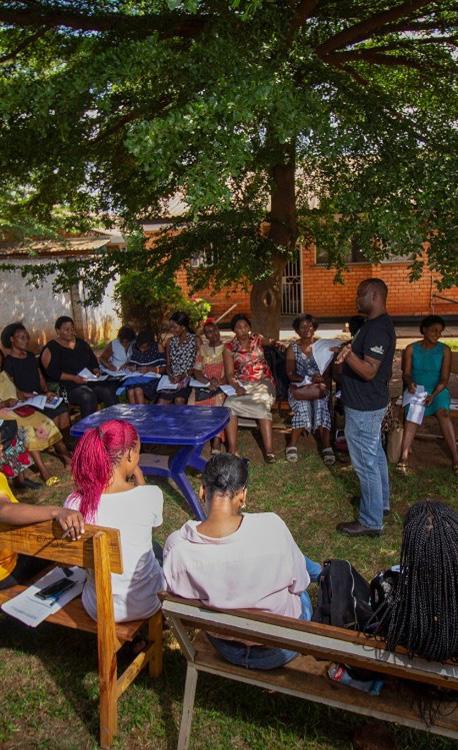
1 minute read
CROSS-PILLAR CASE STUDY 3 COMMUNITY ENGAGEMENT IN ZAMBIA
by ICARS
At the start of 2022, the Eden University School of Pharmacy began implementing a project to improve the management of urinary tract infections using innovative community engagement approaches. With co-funding from Wellcome, the project is using the ‘Responsive Dialogues’ (RD) framework and toolkit. The RD approach aims to address the gap between local realities and policies by facilitating dialogue between community members and discussing solutions that could enable change in attitudes, behaviours, policies, and practices on the use of antimicrobials.
In the first year, the Zambia RD project has hosted four rounds of conversation events in Lusaka and Ndola (the final round will be hosted in Livingstone in 2023) and gathered insights from a range of stakeholders including healthcare workers, teachers, pharmacists, hospital staff and other community members. These events have shed light on the complex social factors that influence engagement with antibiotics and health-seeking behaviour in relation to UTIs. Furthermore, the participants from each of the conversation events have co-created solutions to tackle the challenge of AMR in the context of UTIs which have been presented to relevant stakeholders, with a national event to follow in 2023. The project findings will be synthesised and published in autumn 2023 after the project concludes.
Advertisement
This Responsive Dialogue project is closely connected with two other ICARS projects. By creating community-informed solutions and interventions that are policy relevant, the project will also generate evidence to support our project aiming to optimise antimicrobial use in BSIs and UTIs by introducing a stewardship programme in selected healthcare facilities. With the overlapping focus on UTIs, it will provide a direct channel for feeding back community insights into healthcare settings.
In addition, the learnings from the RD pilot in Zambia will be channelled into a new project which aims to build on the toolkit by developing complementary training modules and guidelines. These extra tools will make the process for facilitating ‘Conversation Events’ – which are at the core of the RD approach - clearer, more accessible, streamlined, and relevant to a range of stakeholders in LMIC settings. This project will use participatory and multidisciplinary approaches, drawing on a diverse project team based at the School of Public Health, University of the Western Cape, South Africa, and key stakeholders from health, agriculture, and environment sectors –embracing the One Health concept to address AMR priorities.
Horizontal learnings across projects and transferability of findings are central to ICARS mission. The above activities span across pillar 1 and 2 testing solutions and translating evidence, and their interconnectedness creates greater potential for broader impact. Behind each of our projects exists a network of partners and relationships connecting countries, regions, and sectors – complementary projects provide avenues for leveraging these wider networks during co-development, implementation, dissemination, and beyond.



